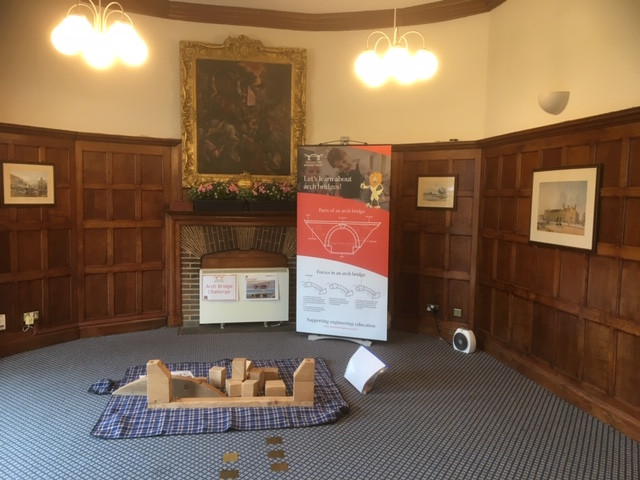Practice Description

Informal STEM-focused making activities for children aged 5-10 years that are framed by play
by Rochester Bridge Trust added on 24 Nov 2020
|
Brief description:
|
The activities described in this practice were developed and implemented by an educational programme that is funded by The Rochester Bridge Trust, located in the South of England. The aim of the educational programme is to engage children, and their families, in engineering through activities that are described as ‘learning through play’ and, ‘both fun and educational’. The education programmes include making activities with an engineering focus, as part of school workshops, and, bespoke actor-led sessions that are located in range of heritage sites e.g. castles, cathedrals and town halls. Examples of activities include building bridges and structures of different types (e.g. arch, beam, truss) and sizes, using a range of materials (e.g. wooden and K’nex blocks,) and engineering focused imaginative play using health and safely themed dressing-up clothes (e.g. high-visibility jackets, hard hats and steel toe-capped boots) and equipment (e.g. eye googles, face mask). All activities and resources are provided free of charge and small grants are also made to fund travel to events or the development of projects in schools and other community groups. |
|---|---|
|
Photos:
|
|
|
Countries:
(where the practice takes place)
|
United Kingdom |
|
Cities:
(where the practice takes place)
|
Not taking place at a specific city |
|
Organization name:
(running the practice)
|
Rochester Bridge Trust |
|
Organization type:
|
Nonprofit |
|
Contact person:
|
|
|
Contact email:
(for further information and inquiries)
|
education@rochesterbridgetrust.org.uk |
|
Social media:
|
|
|
Related resources:
(e.g., web site, publications,media)
|
|
|
Participants’ age groups:
|
5 - 10 |
|
Indicative number of participants:
|
30 - 60 |
|
Oriented to a specific gender?
|
No |
|
Frequency:
(for the same group of participants)
|
Single-occasion |
|
Total duration:
(for the same group of participants)
|
Half day |
|
Location:
(where the practice takes place)
|
|
|
What are the role(s) of the adult(s) running the practice?
|
|
|
During the practice, participants…
|
|
|
Participants work…
|
|
|
What type of materials do participants use?
|
|
|
Pedagogical approach:
|
|
|
Social justice/equity approaches:
|
|
|
Does the practice have (explicit or implicit) learning objectives?
|
No |
|
Is the practice (explicitly or implicitly) connected to school curricula?
|
Yes, explicitly |
|
If connected in any way to school curricula, which subjects are covered?
|
|
|
Does the practice aim to have an impact on the engagement / interest of participants with a particular scientific topic, concept, phenomena, theory or career?
|
Yes: Engage young people with engineering. |
|
Does the practice aim to have an impact on the attitude of participants with a particular scientific topic, concept, phenomena, theory, or career?
|
Yes: Support young people to consider engineering as a possible future career. |
|
Does the practice aim to have an impact on the behavior of participants related to a particular scientific topic, concept, phenomena, theory, or career?
|
No |
|
Does the practice aim to have an impact on the development / reinforcement / practice of skills of participants?
|
No |
|
Additional notes:
|